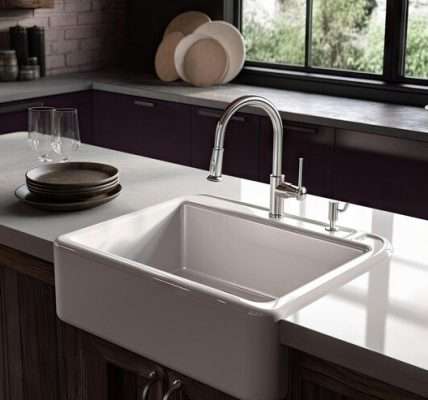Understanding the energy consumption of household appliances is crucial for managing electricity bills and promoting energy efficiency. One of the most significant energy consumers in many homes is the water heater. Determining the average kWh per day water heater consumes can be tricky, as it depends on various factors like tank size, usage habits, insulation, and the type of heater. This article delves into these factors, providing insights into how to calculate and potentially reduce your water heater’s energy footprint. Ultimately, getting a handle on the average kWh per day water heater is achievable with a little knowledge and attentiveness.
Factors Influencing Water Heater Energy Consumption
Several factors contribute to the amount of energy a water heater uses on a daily basis. These factors can be broadly categorized into heater characteristics, usage patterns, and environmental conditions.
- Tank Size: Larger tanks require more energy to heat and maintain water temperature.
- Type of Heater: Electric resistance heaters generally consume more energy than heat pump water heaters.
- Insulation: Poorly insulated tanks lose heat more quickly, leading to increased energy consumption.
- Usage Patterns: Frequent and prolonged hot water usage increases energy consumption.
- Thermostat Setting: Higher temperature settings result in higher energy consumption.
- Water Hardness: Hard water can cause sediment buildup, reducing efficiency.
Estimating Your Water Heater’s Daily kWh Consumption
While a precise calculation requires specific data, you can estimate your water heater’s daily kWh consumption using the following formula:
Daily kWh = (Tank Capacity in Gallons x 8.34 lbs/gallon x Temperature Rise in °F x Specific Heat of Water (1 BTU/lb°F)) / (3412 BTU/kWh x Efficiency)
Where:
- Tank Capacity: The size of your water heater tank in gallons.
- Temperature Rise: The difference between the incoming water temperature and the desired hot water temperature.
- Efficiency: The energy factor (EF) rating of your water heater (usually found on the heater’s label).
For example, let’s say you have a 50-gallon electric water heater with an EF rating of 0.90. The incoming water temperature is 60°F, and you want to heat the water to 120°F. The temperature rise is 60°F.
Daily kWh = (50 x 8.34 x 60 x 1) / (3412 x 0.90) ≈ 8.15 kWh
Tips to Reduce Water Heater Energy Consumption
Reducing your water heater’s energy consumption can lead to significant savings on your electricity bill. Here are a few actionable tips:
- Lower the Thermostat Setting: Reducing the temperature to 120°F is generally sufficient.
- Insulate the Tank: Add an insulating blanket to older water heaters.
- Fix Leaks: Repair any leaks in pipes or fixtures.
- Install Low-Flow Showerheads and Faucets: Reduce hot water usage.
- Wrap exposed hot water pipes: Insulate the hot water pipes nearest the water heater.
- Consider a Tankless Water Heater: Tankless heaters only heat water when needed.
Comparing Different Types of Water Heaters
| Type of Water Heater | Pros | Cons | Typical Efficiency (Energy Factor) |
|---|---|---|---|
| Electric Resistance | Lower initial cost, easy installation | Higher operating cost, slower recovery time | 0.90 ‒ 0.95 |
| Heat Pump | High efficiency, lower operating cost | Higher initial cost, may require specific installation conditions | 2.0 ‒ 3.0 |
| Gas (Natural Gas or Propane) | Faster recovery time than electric resistance, lower operating cost than electric resistance | Requires gas line, produces greenhouse gases | 0.60 ‒ 0.70 |
Is a Tankless Water Heater Right For You?
Thinking about upgrading your current water heater? Should you consider a tankless model? Do you know they heat water on demand, eliminating the standby heat loss associated with traditional tanks? Are you aware that this can lead to significant energy savings, particularly in households with irregular hot water usage? But are you also prepared for the potentially higher upfront cost and the need for professional installation? Does your home have the necessary electrical or gas infrastructure to support a tankless system? Would the flow rate of a tankless heater adequately meet your household’s peak demand for hot water during simultaneous showers and appliance use?
Smart Water Heaters: A Gimmick or a Game Changer?
Have you heard about smart water heaters? Are they really worth the hype? Do you understand how they use sensors and connectivity to optimize energy consumption? Can they learn your usage patterns and preheat water only when needed? Do they offer features like remote control and leak detection via a smartphone app? But aren’t you concerned about the potential security vulnerabilities of connecting your water heater to the internet? Is the added cost of a smart water heater justified by the potential energy savings, or would simpler conservation measures be more cost-effective?
What About Solar Water Heating?
Ever considered harnessing the power of the sun to heat your water? Is solar water heating a viable option for your climate and home? Do you know that solar water heaters use solar collectors to absorb sunlight and transfer heat to water? Would you be able to install solar collectors on your roof or property? Are you aware that solar water heating systems often require a backup system for cloudy days or periods of high demand? Is the environmental benefit and long-term cost savings worth the initial investment and maintenance requirements?
Ultimately, choosing the right water heating solution and optimizing its usage is a personal decision based on your individual needs and circumstances. Have you carefully weighed the factors that impact the average kWh per day water heater consumption in your home? Have you explored all available options and considered both the upfront costs and long-term savings? Are you ready to take control of your hot water and reduce your energy footprint?

